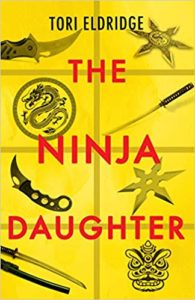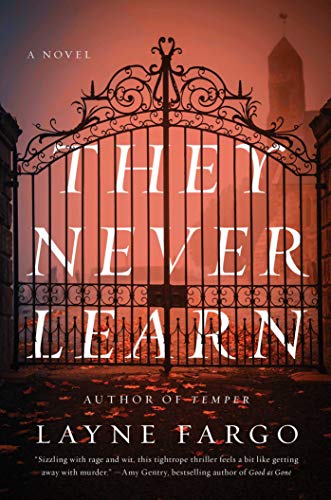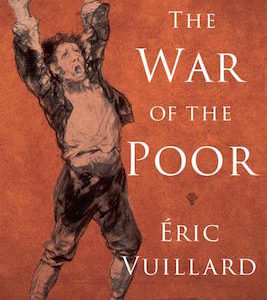Dr. Scarlett Clark, the heroine of my latest thriller They Never Learn, hunts and kills rapists in her spare time. That’s led many readers to refer to her as a vigilante. But Scarlett doesn’t see herself that way, and I don’t either. She’s a serial killer—and proud of it, too.
So what makes someone a vigilante versus a straight-up killer? To me, the difference is one of motivation and internal conflict. For characters who are true vigilantes, there’s a certain amount of guilt involved. They’ve decided the ends justify the means, even if the means involve murder—but they still wrestle with their choices.
Whereas in Scarlett’s case, while she’s made it her life’s mission to rid the world of terrible men, she’s motivated by her own personal vendettas rather than a broader moral mission. And she’s not the least bit sorry for her killer side hustle. She genuinely gets a kick out of it: the planning, the anticipation, the terror in her victims’ eyes right before she ends them—she enjoys every second. Scarlett knows murder is wrong, she just doesn’t care. Why should she, when she’s having so much fun?
Crime fiction has always wrestled with the moral quandary of taking justice into your own hands. Let’s look at some other characters who walk this fine line and consider the crucial question: are they crusading vigilantes, or just cold-blooded killers?

Dexter Morgan
Dexter
Scarlett draws frequent comparisons to Dexter, since they’re both serial killers who set their sights on other bad people (though full disclosure: I didn’t watch a single episode of Dexter until after They Never Learn was finished, and I still haven’t read the original books by Jeff Lindsay!). As a psychopath, Dexter isn’t capable of guilt or remorse. He feels compelled to commit violent acts, and if he didn’t channel his urges toward other killers, he’d no doubt take innocent lives instead.
Verdict: Killer
Lily Wong
The Ninja Daughter and The Ninja’s Blade by Tori Eldridge
Spurred to action by the sexual assault of someone close to her, badass martial artist Lily becomes an unofficial “big sister” to the city of Los Angeles, dedicating herself to taking out bad men and helping women escape dangerous situations. Though she’s well-versed in many different ways to kill a man, Lily ends lives only when she has no other choice, and she constantly struggles with guilt over her actions.
Verdict: Vigilante
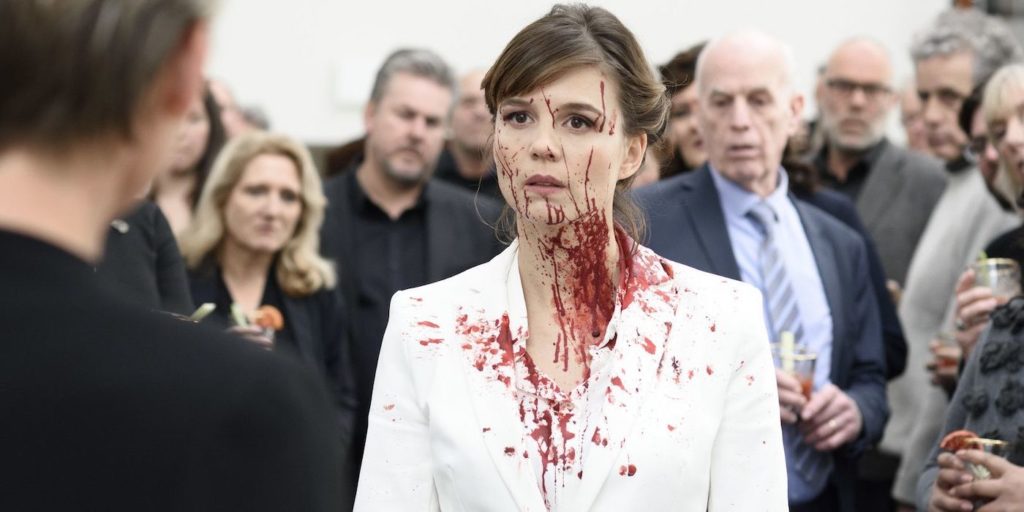
Femke Boot
The Columnist
This bloody hilarious Danish film stars Katja Herbers as the titular columnist, who’s put up with Internet trolls trashing her work for years. One day Femke decides enough is enough and starts slaughtering men who’ve sent her online threats. Revenge isn’t the only benefit of her murder spree: it also has the unexpected side effect of curing her writer’s block (fellow authors: don’t try this at home… well, maybe if you’re really stuck).
Verdict: Killer
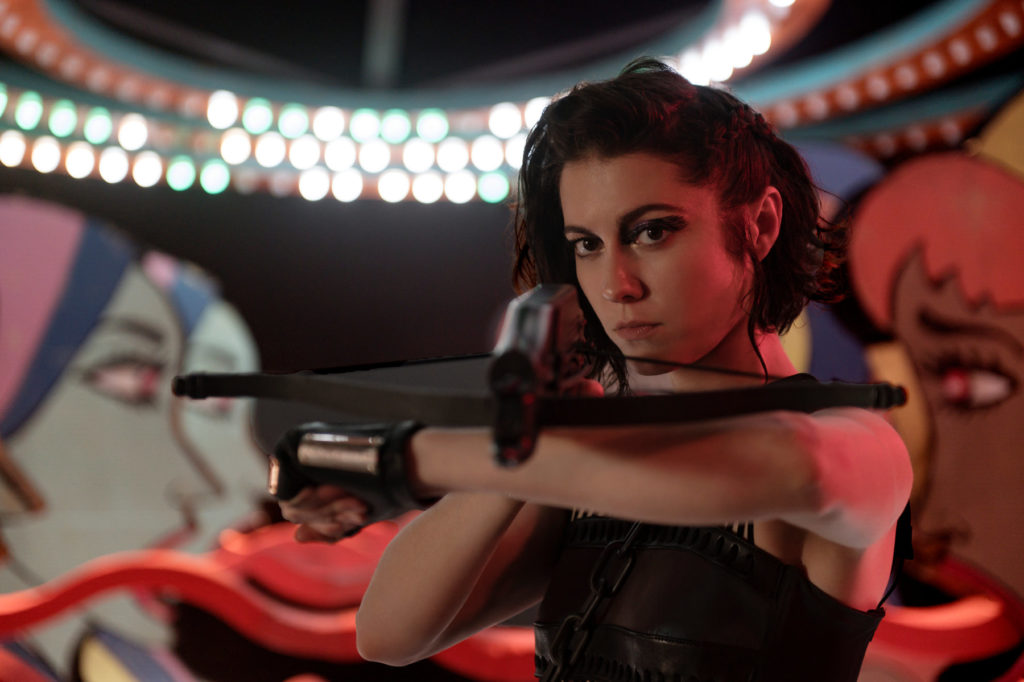
Huntress
Birds of Prey
Mary Elizabeth Winstead’s Birds of Prey character Helena Bertinelli, aka The Huntress, spends most of the movie on a murderous rampage through Gotham City. But she’s got a very specific set of targets (the men responsible for massacring her family when she was a child), and as soon as she’s checked the last name off her kill list, she puts her considerable ass-kicking skills to use defending the city against a greater threat.
Verdict: Vigilante
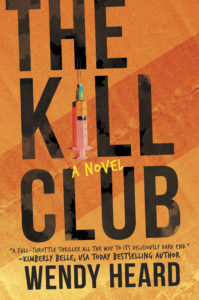
Jazz
The Kill Club by Wendy Heard
Sure, Heard’s scrappy, street-smart heroine willingly joins a murder club, but it’s solely to protect her little brother Joaquin from their religious nutjob foster mom. Even though she does some morally questionable things, Jazz is a good person, and as soon as her brother is safe, she wants nothing more to do with killing—though unfortunately for her, the shadowy figures behind the murder club have other plans.
Verdict: Neither (now there is a vigilante character in The Kill Club, but it would be a spoiler to tell you who—you’ll just have to read it and find out)
*


